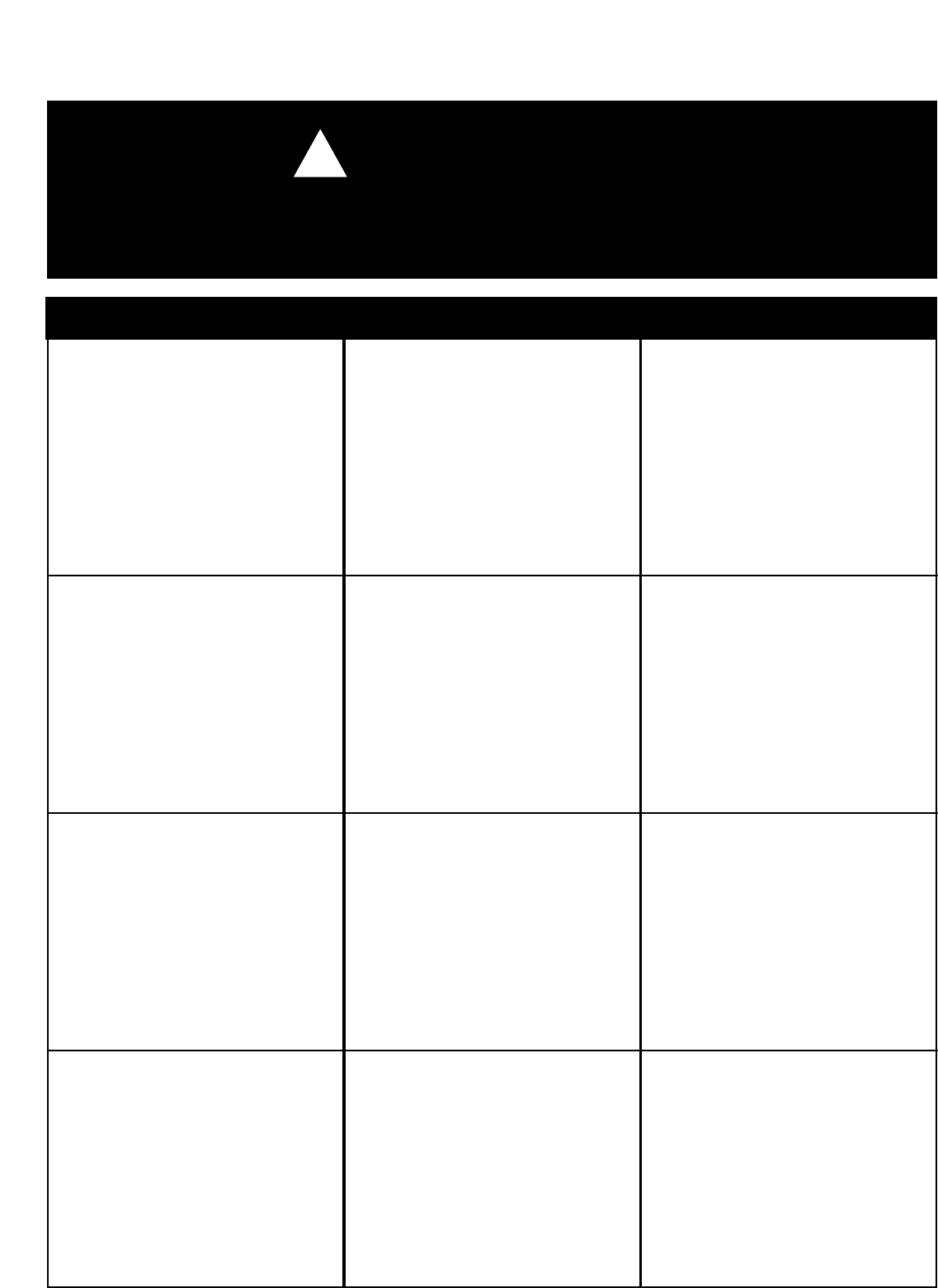
• Children climbing on furniture.
• A child may try to reach a
toy or other object by
climbing on furniture.
• Children will play and be
active near the TV.
• Improper use of furniture
to support TVs.
• Placing a TV that is larger or
heavier than the load rating
on the furniture item is hazardous.
• Overloaded drawers and shelves.
• Improperly moving furniture
that is not designed and
equipped with casters.
• Risk of injury or death.
• A child climbing on a piece of
furniture can make it top-heavy
and cause it to tip over.
• A child playing with a TV can
cause it to tip over.
• Risk of injury or death.
• TVs can be very heavy.
Plus the weight and location
of the picture tube tends to
make them unbalanced and
prone to tipping forward.
• Risk of injury.
• Top-heavy furniture can tip over.
• Overloaded drawers or
shelves can break.
• Furniture can tip over or break
if improperly moved.
• Risk of injury.
Furniture can be very heavy.
• Never allow children to climb on
or play with furniture.
• Do not place toys, food, etc. on
the top shelves or upper drawers.
Children may try to climb to reach
them out of curiosity.
• Never exceed the rating for
the maximum size and weight
of TV allowed.
• Refer to your instructions for
correct TV size and weight.
• Be sure you have applied the
warning label as instructed.
• Never exceed the weight limits
shown in the instructions.
• Work from the bottom to the top
when loading shelves and drawers.
• Place the heavier items on lower
shelves or in lower drawers.
• Unload drawers and shelves
from the top to the bottom
before moving the furniture.
• Do not push furniture,
especially on a carpeted
floor. Have a friend help you
lift the item and set it in place.
Look out for: What can happen: How to avoid:
Warning
Please use your furniture correctly and safely. Improper use can cause safety hazards,
o
r damage to your furniture or household items.
C
arefully read the following chart.
!


















